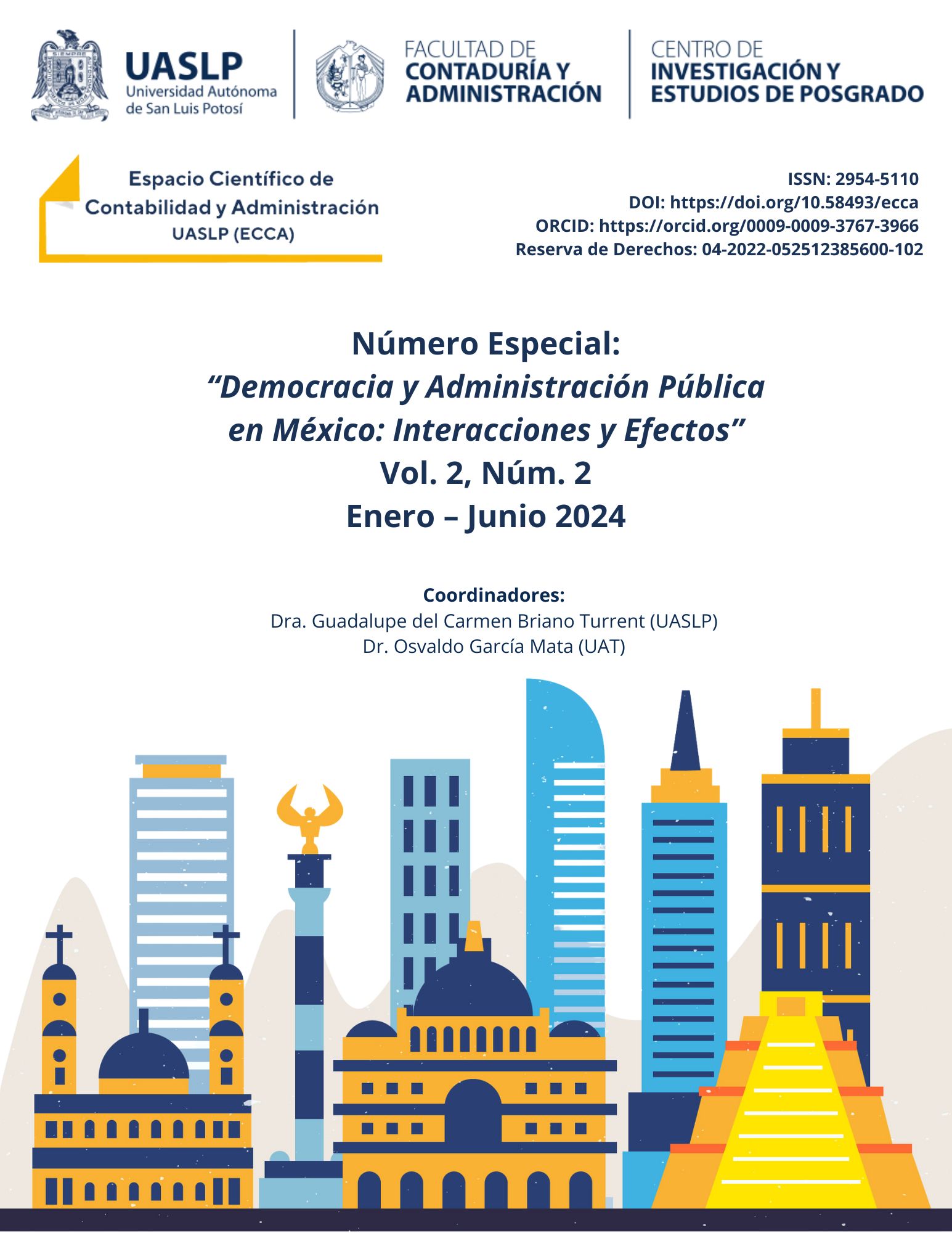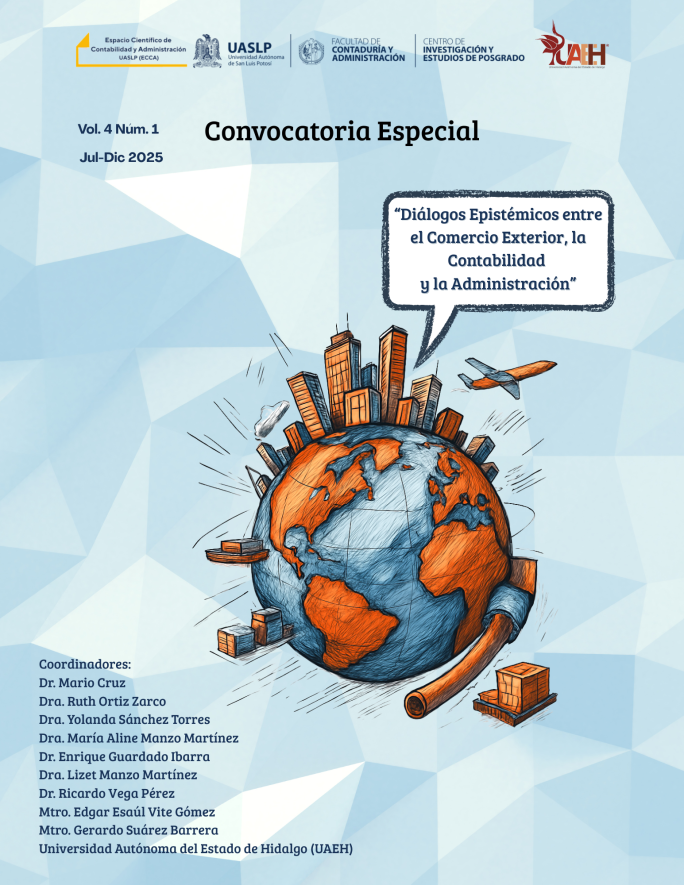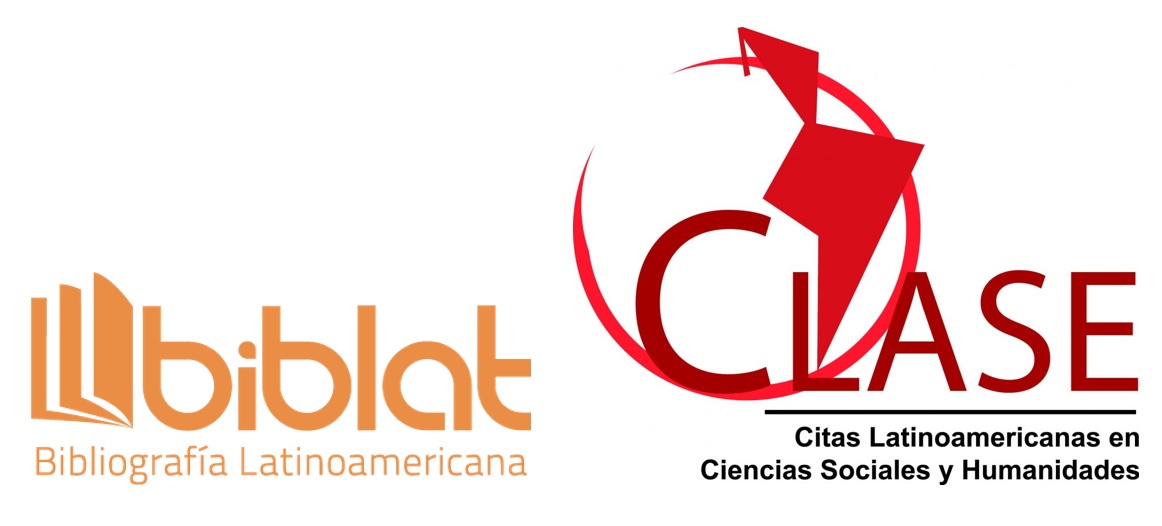The Validation of a Scale to Measure the Principles of Meritocracy, Democracy, and Materialism Among Emerging Adults
DOI:
https://doi.org/10.58493/ecca.2024.2.2.06Keywords:
meritocracy, democracy, materialism, equity, emerging adultsAbstract
This research aims to construct a scale to measure meritocratic, democratic, and materialistic principles among emerging adults. The applied method includes factor analysis and structural equation models to build a measurement model. Our results confirm a close relationship between the three concepts; moreover, emerging adults define meritocracy by their possibilities of progress based on their effort, democracy by equal opportunities for access to the labor market and public affairs, and materialism by material commodities and their relationship to success and social acceptance. These findings are helpful for policymakers, educators, and personnel administrators because they guide decisions related to emerging adults in their roles as citizens, students, and workers, among others. One of its main limitations is the need for more data for longitudinal studies that facilitate establishing cause-effect relationships.
References
Arnett, J. J. (2000). Emerging adulthood: A theory of development from the late teens through the
twenties. American Psychologist. Vol. 55, núm. 5, 469–480. https://doi.org/10.1037//0003-066X.55.5.469
Atria, J., Castillo, J., Maldonado, L. y Ramirez, S. (2020). Economic Elites’ Attitudes Toward Meritocracy in
Chile: A Moral Economy Perspective. American Behavioral Scientist. Vol. 64, núm. 9, 1219–1241.
https://doi.org/10.1177/0002764220941214
Bandiera, O., Kotia, A., Lindenlaub, I., Moser, C., & Prat, A. (2024). Meritocracy across countries. In NBER
Working Papers (No. 32375). https://doi.org/10.3386/w32375
Barrera-Herrera, A. y Vinet, E. V. (2017). Adultez Emergente y características culturales de la etapa en
universitarios chilenos. Terapia Psicológica. Vol. 35, núm. 1, 47–56. https://doi.org/10.4067/s0718-
Bartlett, M. S. (1937). Properties of sufficiency and statistical tests. Proceedings of the Royal Society of
London. Series A - Mathematical and Physical Sciences. Vol. 160, núm. 901, 268–282.
https://doi.org/10.1098/rspa.1937.0109
Campos, D. (2023). Cuatro sexenios de políticas sociales en México (2000-2021): Predominancia de
soluciones inhibidoras y singulares. Espacio Científico de Contabilidad y Administración-UASLP (ECCA).
Vol. 1, núm. 2, 63-78.
Castillo, M., Rojas, E. y Rueda, E. (2020). Social inequalities and their impact on health: Current knowledge
and prospective perspectives. Salud Pública de México, 62(4), 421-429. https://doi.org/10.21149/11619
Cleveland, M. J. y Goldstein, A. L. (2019). Opportunities and Challenges for Prevention and Intervention in
Emerging Adulthood: Introduction to the Special Issue. Prevention Science, Vol. 20, núm. 3, 301–304.
https://doi.org/10.1007/s11121-019-0976-z
Cruz, L. (2023). Fomentando la práctica de la economía social y solidaria dentro del programa Sembrando
Vida en San Luis Potosí. Espacio Científico de Contabilidad y Administración UASLP (ECCA). Vol. 2, núm. 1,
-62.
Daniels, N. (1978). Merit and meritocracy. Philosophy and Public Affairs. Vol. 7, núm. 3, 206–223.
http://www.jstor.org/stable/2265145 .
Denegri Coria, M. del C., Torres Acosta, J. A. R., Correa Abarzúa, M. I., González Rodríguez, V. B., Toro
Lavanderos, J. C. B., Salazar Valenzuela, P. A., Riquelme Segura, L. M. y Sepúlveda Maldonado, J. A. (2021).
Estilos de consumo, actitudes hacia el dinero, y materialismo en adolescentes chilenos y ecuatorianos.
Perfiles Latinoamericanos. Vol. 29, núm. 58, 1–29. https://doi.org/10.18504/pl2958-013-2021
El Colegio de México. (2018). Desigualdades en México. https://dds.cepal.org/redesoc/publicacion?
id=4773
García, D. e Ibarra, M. (2023). Reinvención de la Política Social en México y su evaluación: un análisis del
Programa Sembrando Vida en San Luis Potosí. Espacio Científico de Contabilidad y Administración-UASLP
(ECCA). Vol. 1, núm. 2, 93-109
He, B. y Warren, M. E. (2020). Can meritocracy replace democracy? A conceptual framework. Philosophy
and Social Criticism. Vol. 46, núm. 9, 1093–1112. https://doi.org/10.1177/0191453720948388
Holsinger, K. y Sexton, L. (2017). Justice, Privilege, and Identity. En K. Holsinger y L. Sexton (Eds.), Toward
Justice (1a. ed., pp. 81–94). Routledge. https://doi.org/10.4324/9781315644950-8
Jung, S. Y., Kim, E. y Moon, S. G. (2017). The influence of personal values, social trust, and political trust on
multicultural acceptance. International Review of Public Administration. Vol. 22, núm. 2, 138–152.
https://doi.org/10.1080/12294659.2017.1316945
Kaiser, H. F. (1974). An index of factorial simplicity. Psychometrika. Vol. 39, núm. 1, 31–36.
https://doi.org/10.1007/BF02291575 Lasierra-Esteban, J. M. (2020). Una revisión de las teorías
materialistas-postmaterialistas a partir de una clasificación generacional. Tempo Social, Revista de
Sociologia Da USP. Vol. 32, núm. 2, 349–373. https://doi.org/10.11606/0103-2070.ts.2020.164349
Martínez, L. M., García, C. y Sánchez, J. (2021). Educational inclusion and quality: Challenges and
perspectives in Latin America. Revista Iberoamericana de Educación, 86(2), 45-64.
https://doi.org/10.35362/rie8623546
Arnett, J. J. (2000). Emerging adulthood: A theory of development from the late teens through the
twenties. American Psychologist. Vol. 55, núm. 5, 469–480. https://doi.org/10.1037//0003-066X.55.5.469
Atria, J., Castillo, J., Maldonado, L. y Ramirez, S. (2020). Economic Elites’ Attitudes Toward Meritocracy in
Chile: A Moral Economy Perspective. American Behavioral Scientist. Vol. 64, núm. 9, 1219–1241.
https://doi.org/10.1177/0002764220941214
Bandiera, O., Kotia, A., Lindenlaub, I., Moser, C., & Prat, A. (2024). Meritocracy across countries. In NBER
Working Papers (No. 32375). https://doi.org/10.3386/w32375
Barrera-Herrera, A. y Vinet, E. V. (2017). Adultez Emergente y características culturales de la etapa en
universitarios chilenos. Terapia Psicológica. Vol. 35, núm. 1, 47–56. https://doi.org/10.4067/s0718-
Bartlett, M. S. (1937). Properties of sufficiency and statistical tests. Proceedings of the Royal Society of
London. Series A - Mathematical and Physical Sciences. Vol. 160, núm. 901, 268–282.
https://doi.org/10.1098/rspa.1937.0109
Campos, D. (2023). Cuatro sexenios de políticas sociales en México (2000-2021): Predominancia de
soluciones inhibidoras y singulares. Espacio Científico de Contabilidad y Administración-UASLP (ECCA).
Vol. 1, núm. 2, 63-78.
Castillo, M., Rojas, E. y Rueda, E. (2020). Social inequalities and their impact on health: Current knowledge
and prospective perspectives. Salud Pública de México, 62(4), 421-429. https://doi.org/10.21149/11619
Cleveland, M. J. y Goldstein, A. L. (2019). Opportunities and Challenges for Prevention and Intervention in
Emerging Adulthood: Introduction to the Special Issue. Prevention Science, Vol. 20, núm. 3, 301–304.
https://doi.org/10.1007/s11121-019-0976-z
Cruz, L. (2023). Fomentando la práctica de la economía social y solidaria dentro del programa Sembrando
Vida en San Luis Potosí. Espacio Científico de Contabilidad y Administración UASLP (ECCA). Vol. 2, núm. 1,
-62.
Daniels, N. (1978). Merit and meritocracy. Philosophy and Public Affairs. Vol. 7, núm. 3, 206–223.
http://www.jstor.org/stable/2265145 .
Denegri Coria, M. del C., Torres Acosta, J. A. R., Correa Abarzúa, M. I., González Rodríguez, V. B., Toro
Lavanderos, J. C. B., Salazar Valenzuela, P. A., Riquelme Segura, L. M. y Sepúlveda Maldonado, J. A. (2021).
Estilos de consumo, actitudes hacia el dinero, y materialismo en adolescentes chilenos y ecuatorianos.
Perfiles Latinoamericanos. Vol. 29, núm. 58, 1–29. https://doi.org/10.18504/pl2958-013-2021
El Colegio de México. (2018). Desigualdades en México. https://dds.cepal.org/redesoc/publicacion?
id=4773
García, D. e Ibarra, M. (2023). Reinvención de la Política Social en México y su evaluación: un análisis del
Programa Sembrando Vida en San Luis Potosí. Espacio Científico de Contabilidad y Administración-UASLP
(ECCA). Vol. 1, núm. 2, 93-109
He, B. y Warren, M. E. (2020). Can meritocracy replace democracy? A conceptual framework. Philosophy
and Social Criticism. Vol. 46, núm. 9, 1093–1112. https://doi.org/10.1177/0191453720948388
Holsinger, K. y Sexton, L. (2017). Justice, Privilege, and Identity. En K. Holsinger y L. Sexton (Eds.), Toward
Justice (1a. ed., pp. 81–94). Routledge. https://doi.org/10.4324/9781315644950-8
Jung, S. Y., Kim, E. y Moon, S. G. (2017). The influence of personal values, social trust, and political trust on
multicultural acceptance. International Review of Public Administration. Vol. 22, núm. 2, 138–152.
https://doi.org/10.1080/12294659.2017.1316945
Kaiser, H. F. (1974). An index of factorial simplicity. Psychometrika. Vol. 39, núm. 1, 31–36.
https://doi.org/10.1007/BF02291575
Lasierra-Esteban, J. M. (2020). Una revisión de las teorías materialistas-postmaterialistas a partir de una
clasificación generacional. Tempo Social, Revista de Sociologia Da USP. Vol. 32, núm. 2, 349–373.
https://doi.org/10.11606/0103-2070.ts.2020.164349
Martínez, L. M., García, C. y Sánchez, J. (2021). Educational inclusion and quality: Challenges and
perspectives in Latin America. Revista Iberoamericana de Educación, 86(2), 45-64.
https://doi.org/10.35362/rie8623546
Marx, K. y Engels, F. (1978). The German Ideology. In R. C. Tucker (Ed.), The Marx-Emgels Reader (2nd ed.,
pp. 148–160). W. W. Norton.
Mijs, J. J. B. y Savage, M. (2020). Meritocracy, Elitism and Inequality. Political Quarterly. Vol. 91, núm. 2,
–404. https://doi.org/10.1111/1467-923X.12828
Millward-Hopkins, J. (2021). Back to the future: Old values for a new (more equal) world. Futures. Vol. 128.
https://doi.org/10.1016/j.futures.2021.102727
Montes López, E. y O’Connor, P. (2019). Micropolitics and meritocracy: Improbable bed fellows?
Educational Management Administration and Leadership. Vol. 47, núm. 5, 678–693.
https://doi.org/10.1177/1741143218759090
Naciones Unidas. (1948). Declaración Universal de los Derechos Humanos. https://www.un.org/es/aboutus/universal-declaration-of-human-rights
Naciones Unidas. (2015). Objetivos de Desarrollo Sostenible. Agenda 2030 Sobre El Desarrollo Sostenible.
https://www.un.org/sustainabledevelopment/es/objetivos-de-desarrollo-sostenible/
Napoletano, T. (2024). Meritocracy, meritocratic education, and equality of opportunity. Theory and
Research in Education. Vol. 22, núm. 1, 3–18.
https://doi.org/10.1177/14778785241226662/FORMAT/EPUB
Pérez, J. L., Hernández, D. y Gómez, R. (2022). Economic policies and their influence on poverty reduction:
Evidence from Latin America. Economía, 43(3), 315-332. https://doi.org/10.1234/eco.2022.43315
Rangel, N., Ibarra, M., y Plata, L. (2023). Estado de bienestar: ¿El origen de la solución a la problemática en
las reformas a los sistemas de pensiones? Espacio Científico de Contabilidad y Administración UASLP
(ECCA). Vol. 2, núm. 1, 33-48.
Rodríguez, A. M. y Torres, P. (2020). Youth employment policies in Latin America: Analysis and future
directions. Desarrollo Económico, 60(230), 125-145. https://doi.org/10.1234/de.2020.230125
Sahui, A. (2016). La igualdad en la medida de la calidad democrática Una revisión crítica de la propuesta
de Leonardo Morlino. Revista Mexicana de Ciencias Politicas y Sociales. Vol. 61, núm. 227, 273–293.
https://doi.org/10.1016/S0185-1918(16)30029-0
Salazar, L. y Woldenberg, J. (2020). Principios y valores de la democracia. Nueva edición (Instituto Nacional
Electoral (ed.); 1ª. ed.). https://portal.ine.mx/wp-content/uploads/2021/02/CDCD-01.pdf
Sandel, M. J. (2021). How meritocracy fuels inequality. American Journal of Law and Equality. Vol. 1, 146–
Scully, M. A. (2015). Meritocracy. In C. L. Cooper (Ed.), Wiley Encyclopedia of Management (pp. 1–2). John
Wiley & Sons, Ltd. https://doi.org/10.1002/9781118785317.WEOM020075
Sirgy, J. J. M., Gurel-Atay, E., Webb, D., Cicic, M., Husic-Mehmedovic, M., Ekici, A., Herrmann, A., Hegazy, I.,
Lee, D. J. y Johar, J. S. (2013). Is Materialism All That Bad? Effects on Satisfaction with Material Life, Life
Satisfaction, and Economic Motivation. Social Indicators Research. Vol. 110, núm. 1, 349–366.
https://doi.org/10.1007/s11205-011-9934-2
Sobuwa, S. y McKenna, S. (2019). The obstinate notion that higher education is a meritocracy. Critical
Studies in Teaching and Learning. Vol. 7, núm. 2, 1–15. https://doi.org/10.14426/cristal.v7i2.184
Vargas, S., López, A. y Salinas, E. (2023). Environmental sustainability and economic growth in emerging
markets: An empirical analysis. Sustainability, 15(6), 789-805. https://doi.org/10.3390/su1506789
Young, M. (2017). The Rise of the Meritocracy (2nd ed.). Routledge.

Downloads
Published
How to Cite
Issue
Section
License
Copyright (c) 2024 Osvaldo García Mata, José Luis Énder Velarde García

This work is licensed under a Creative Commons Attribution-NonCommercial-ShareAlike 4.0 International License.
Usted es libre de:
- Compartir — copiar y redistribuir el material en cualquier medio o formato
- Adaptar — remezclar, transformar y construir a partir del material
- La licenciante no puede revocar estas libertades en tanto usted siga los términos de la licencia
Bajo los siguientes términos:
- Atribución — Usted debe dar crédito de manera adecuada , brindar un enlace a la licencia, e indicar si se han realizado cambios . Puede hacerlo en cualquier forma razonable, pero no de forma tal que sugiera que usted o su uso tienen el apoyo de la licenciante.
- NoComercial — Usted no puede hacer uso del material con propósitos comerciales .
- CompartirIgual — Si remezcla, transforma o crea a partir del material, debe distribuir su contribución bajo la la misma licencia del original.
- No hay restricciones adicionales — No puede aplicar términos legales ni medidas tecnológicas que restrinjan legalmente a otras a hacer cualquier uso permitido por la licencia.












